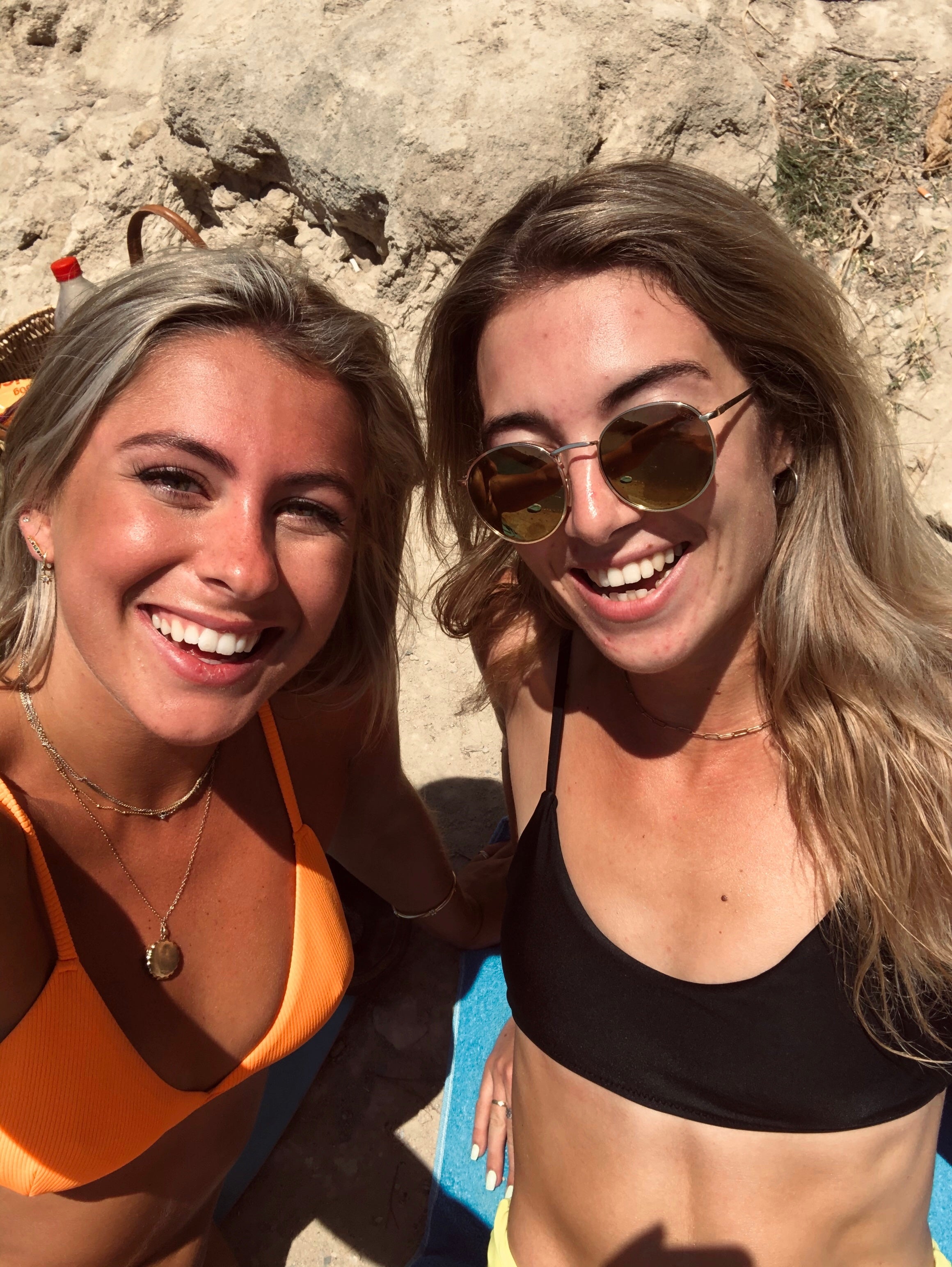The Independent's journalism is supported by our readers. When you purchase through links on our site, we may earn commission.
‘I met my best friend on a dating app – there’s no shame in young people admitting they’re lonely’
When Lydia Spencer-Elliott moved abroad, she worried she wouldn’t have any friends to hang out with. That’s where Bumble BFF came in


No one realises how lucky they are at school to have a never-ending carousel of potential friends rotating around them. But the older we get, the more the opportunity to meet new people lessens. Suddenly, you’re so far from the fun you’re not just in the fairground car park but on the other side of the road where they put the bins out wondering where everyone went.
While it’s no longer unusual for singletons to spend their time scrolling through apps to find a date – by 2031, over half of relationships will start with a swipe, eharmony predicts – there remains a taboo around openly admitting you’re trying to find new friends. We can meet up with a stranger from the internet for the chance of love and sex, but the mere suggestion of a platonic date with a stranger is treated as borderline perverted.
Yet we are in the midst of a loneliness epidemic. Despite the cliched stereotype of the solitary pensioner, young people living in metropolitan areas are most likely to report feeling isolated, according to a recent YouGov survey. Distressingly, 31 per cent of 18 to 24-year-olds have said they feel lonely often or all of the time.
But friendship apps have existed for years. Bumble – whose modus operandi is women making the first move – expanded to launch Bumble BFF in 2016. The friendship feature works in the same way as the dating app, but with the sole goal of matching same-sex users who want to socialise. In internet terms, however, it’s a relic. When Bumble users surpassed 100 million in 2017, the number of people on the BFF platform stood at just 3 million.
When I moved from London to Marbella for work, the worry I’d be entirely friendless when tourist season was over, and the city’s outgoing visitors returned to their hometowns, hovered in my head. I needed something less transient, someone within a 30km radius to collapse hungover and eat pesto pasta with.
If friends visited me from the UK, their inevitable departure made the gaping social hole in my routine all the more noticeable. We filled the void with long-distance video calls, but I still noticed the quiet where their laughter had been when the conversation was over.
After overcoming some serious scepticism – surely only weirdos find friends online, I thought – I faced the reality of my impending loneliness and downloaded Bumble. My profile needed an update from the days it was briefly used for dating: potential friends really didn’t need to know how I looked in a bikini.
“Just moved here to work for a newspaper. Looking for pals,” I wrote before whacking two emojis and my Instagram handle on the end for good measure. I swiped hopefully until the profiles ran out – near impossible on a dating app but only 10 minutes of light work in BFF mode.
“I’m fun I promise!!!” read one bio, “Not a murderer” said another. Swipe left no, swipe right yes, until I matched with Anna. Her photos followed the same format most BFF profiles do: an approachable smiling selfie before a photo with friends to demonstrate the capacity to make them.
“Hey Lydia! Let me know if you fancy going for a coffee or a drink sometime,” she messaged. And it was as simple as that. In the place of shudder-inducing chat, Jesus abs and the cry laughing emojis that characterise digital dating, was an exchange devoid of ego and objectification.
First, we met in a group. I was early, she was late and – much like when you make the misjudged decision to invite your crush to a party instead of dinner – the music was too loud and the table too long to achieve anything other than small talk. But the need to play it cool evaporates when you take sex off the table, so Anna and I made more plans without performative hesitation.
On our second meeting, I waited for Anna to pick me up for a sightseeing daytrip to the Spanish countryside. My palms were sweaty; 60 minutes in the car is a decade for two people in a conversational stalemate. What if she had the personality of a potato? Or off-putting political views? Or nits?
Anna’s car flew around the corner, windows down, music loud, with the same chaotic energy as Cher Horowitz in her Jeep Wrangler. Like the initial swipe, our connection was fast, and familiarity came quicker. I unclenched. “I’M OUT WITH A GIRL FROM BUMBLE,” Anna yelled proudly at her dad over the hands-free as she drove.
We wandered around the town of Ronda: “God, I miss Pizza Express”, “do you have any siblings?”, “will you come out for my birthday?” bounced the conversation. Anna’s energy level was stratospheric, her laugh loud and eyes uncritical. Each detail divulged – she likes French rap and hiking – became a landmark that punctuated our shift from strangers to friends.
Then the winding ridge we had meandered down became slippery, our sandals had no grip and I fell backwards with a shriek. Anna caught me by the arm but lost her own balance in the process. We clang to each other in peals of laughter, scrambling for stability while sliding down the slope with no control. It felt easy.
After a bowl of pasta more enjoyable than any romantic meal saturated with fake laughter and vodka, we said goodbye. I revelled in the absence of the uninvited first date tongue lunge. “Today was fun,” we agreed as I hopped out the car, swaddling each other in assurance that the feeling was mutual.
“You went where with who from what?,” interrogated a friend in the UK. “Bumble BFF? Do people really do that?” asked another, mystified. They do. I did. And perhaps, more should. Now Anna and I send voice notes, plan trips, swim, laugh and sunbathe until our cheeks are red and our throats croak. A whirlwind friendship: we’ve known each other five weeks.
Films and novels romanticise the quest for love, while friendship is expected to happen organically. Thelma already knows Louise, Monica remembers Rachel, and Grace cohabits with Frankie, all without fate or luck. But Notting Hill is plotless without Will throwing orange juice over Anna by chance. Yet, isn’t a firm friendship more significant than the fleetingness of most romantic encounters? Spike is, after all, the one who watches Will moon around forlorn when Anna disappears.
A few women I know have cobbled together platonic friendships off the back of sparkless Tinder dates. But, based on the ghost of mutual attraction, most of them tend to conclude after the same dismal decline: a drunken snog, an unsolicited dick pic and the block button on Instagram. With our conversion to fibre-optic flirting, the lingering stigma around finding friends online is markedly strange.
Knowing people, feeling known, allows you to tether yourself to a new place. Just like finding a favourite bar or somewhere to get your hair cut, the possibility of bumping into a familiar face reminds us that we belong where we are. As the girl gang grows – Otilia, Paula, Holly, Denice, and more a swipe away – Spain has started to feel less like the first day of school and more like the sixth form common room: there’s always someone to eat lunch with. I have the internet to thank for that.
Join our commenting forum
Join thought-provoking conversations, follow other Independent readers and see their replies
Comments


Bookmark popover
Removed from bookmarks